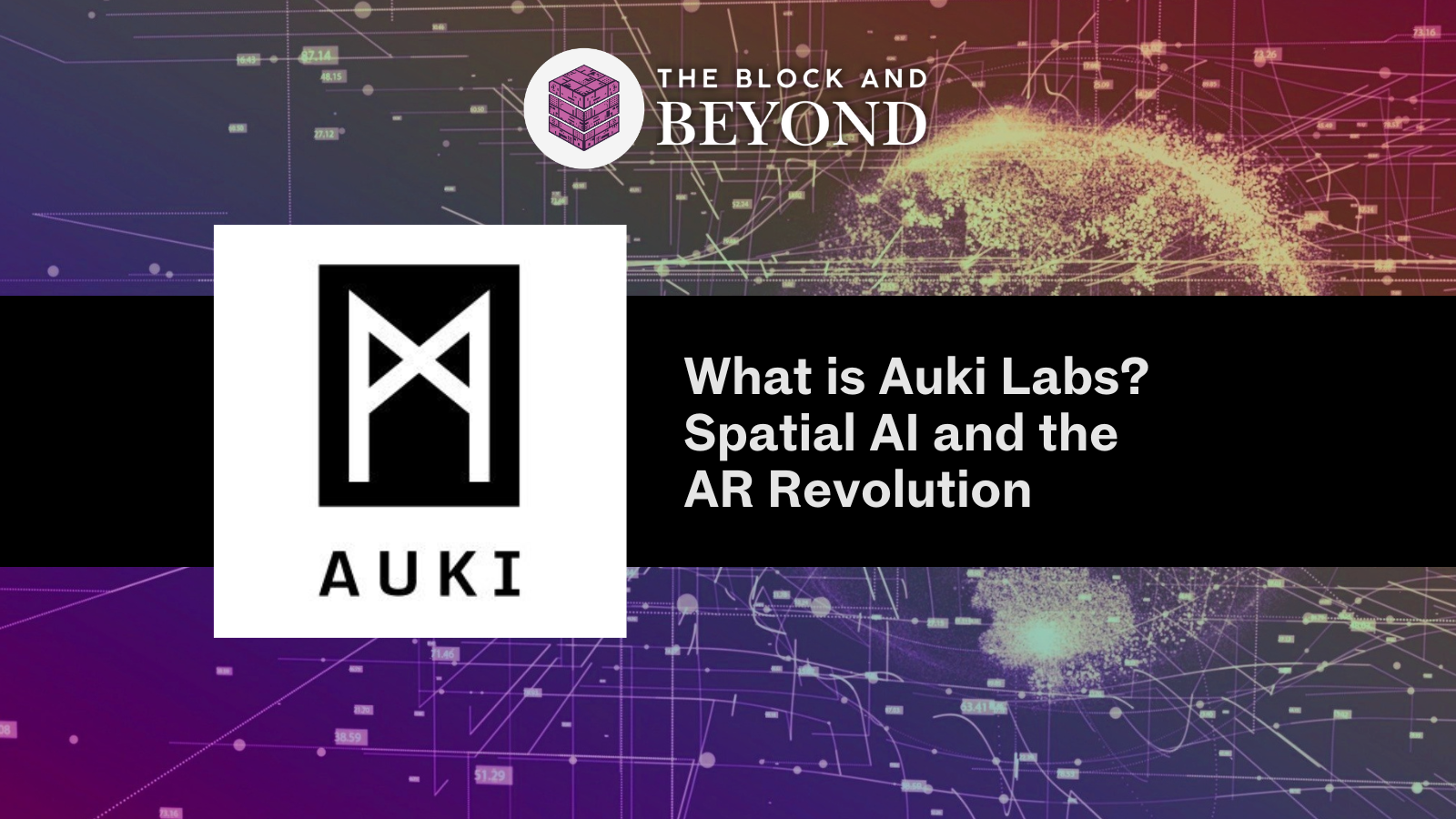Big Tech is racing to build digital replicas of the physical world, collecting everything from room layouts to eye movements. Auki Labs asks: what if you owned your own digital twin? Their platform is redefining how AI sees the world and who gets to control that vision.
What if your phone or glasses could understand space the way you do? Imagine technology that doesn’t just recognize objects but knows exactly where they are in your room, your office, or even a crowded supermarket. This isn’t science fiction. It’s already happening, and Auki Labs is leading the charge.
As the lines between the digital and physical worlds continue to blur, a new type of infrastructure is needed, allowing machines to navigate and understand space with human-like intuition. At the center of this transformation is Spatial AI. But while Big Tech races to build centralized systems that harvest data, Auki Labs believes there's a better path: decentralization, privacy, and user ownership.
Founded in Hong Kong and building across the globe, Auki Labs is not just imagining the future. It's building it, with a technology stack that redefines how machines perceive and interact with space. Whether you're interested in robotics, augmented reality, or simply how AI will live in the real world, Auki Labs is a name to know.
What is Auki Labs?
Auki Labs is a technology company focused on decentralizing spatial computing through its proprietary platform, Posemesh. At its core, Auki Labs enables machines, from smartphones to robots, to understand and interact with physical space using a shared, privacy-respecting digital map.
The company is developing a decentralized protocol for Spatial AI. This means that instead of relying on centralized servers owned by major corporations, users and businesses can host their own nodes to power and store their spatial data. Auki Labs also offers consumer-facing tools like the McKenna app and enterprise platforms like Cactus, all of which operate on the same foundational technology.
In essence, Auki Labs is creating the GPS of the future, a decentralized visual positioning system that helps machines navigate the physical world in real time.
How Does Auki Labs Work?
Auki Labs’ Spatial AI ecosystem operates on three main layers:
1. Visual Positioning and Digital Twins: Machines use cameras and QR markers to map physical spaces and anchor digital content. These maps are called digital twins, which are accurate, virtual representations of physical environments.
2. Posemesh Protocol: This decentralized network allows devices to share spatial information in real-time without relying on centralized infrastructure. It includes three types of nodes:
- Relay Nodes for real-time data syncing
- Storage Nodes for privacy-first local data hosting
- Reconstruction Nodes for processing and building 3D models
3. Hardware Integration: Auki Labs has developed purpose-built hardware, like the Athena robot, to automatically scan and update digital twins in commercial environments. Think of a robot that updates your store layout every night, so everything stays in sync.
On the consumer side, McKenna lets users layer digital content over their real-world spaces using QR codes, creating immersive and persistent AR experiences in their own homes.
How Does Auki Labs Benefit the Ecosystem?
Auki Labs isn’t just building a product. It’s establishing an entirely new layer of the internet—an Internet of Places. This approach has powerful implications for privacy, accessibility, and ownership in the age of Spatial AI.
First, there’s privacy. In a world where AR glasses are becoming mainstream, Big Tech could soon see the world through your eyes. But as Santeri Aramo, Auki Labs’ founder, warns:
"If they have the ability to see the world through your eyes and we all start wearing these AR glasses, they'll hear what we say, they'll see what we see, they'll have a visual map of our homes."
Instead of accepting this future, Auki Labs offers a decentralized alternative. Your data stays in your home, on your node. You control what is stored, who accesses it, and what is monetized.
Second, the ecosystem is participatory. Anyone can run nodes to support the network and earn rewards for contributing compute, storage, or spatial data.
"When spatial computers visit these spaces, they query from this server and ask for information. They only get the information they're asking for, not the entire digital layer."
This allows a kind of machine-to-machine economy where everyday people can benefit.
Third, there are real-world use cases already active. Retailers use Auki Labs’ Cactus system to locate products and optimize layout. Consumers use McKenna to create AR experiences at home. And developers can integrate PoseMesh into any hardware or app.
But one of the most surprising use cases? Accessibility. At a recent conference, Auki Labs met a man in a wheelchair who could not move and speak at the same time. That sparked a new idea: use Posemesh to help wheelchairs navigate space on their own.
"This is just mind-blowing to me. Until we met this guy in Denver, I did not think of this use case."
From empowering the disabled to protecting privacy in a world filled with sensors, Auki Labs represents a radical shift in how we think about the interface between humans, AI, and space.
Visit aukilabs.com to learn more or explore the open-source Posemesh ecosystem and developer tools.











